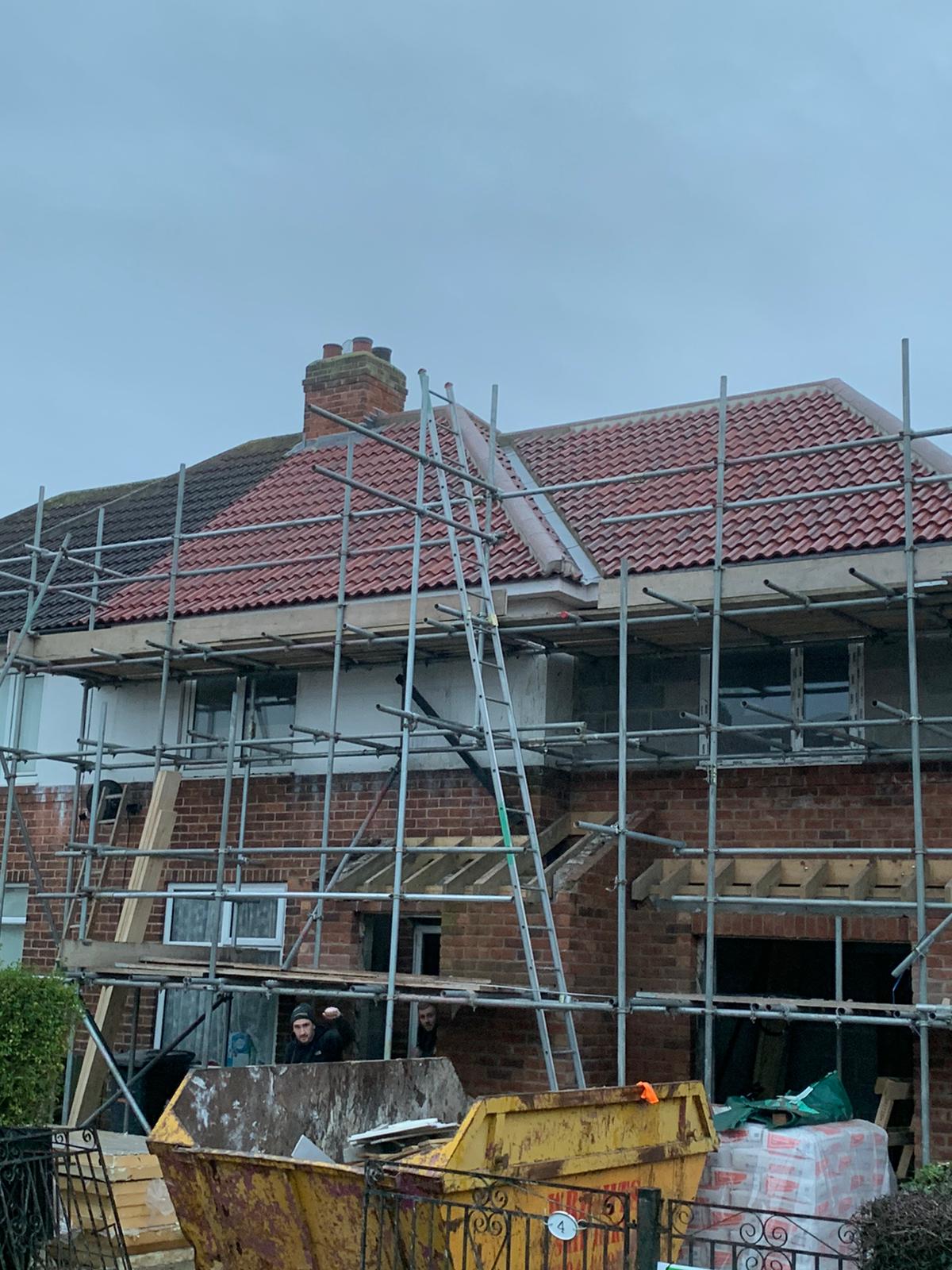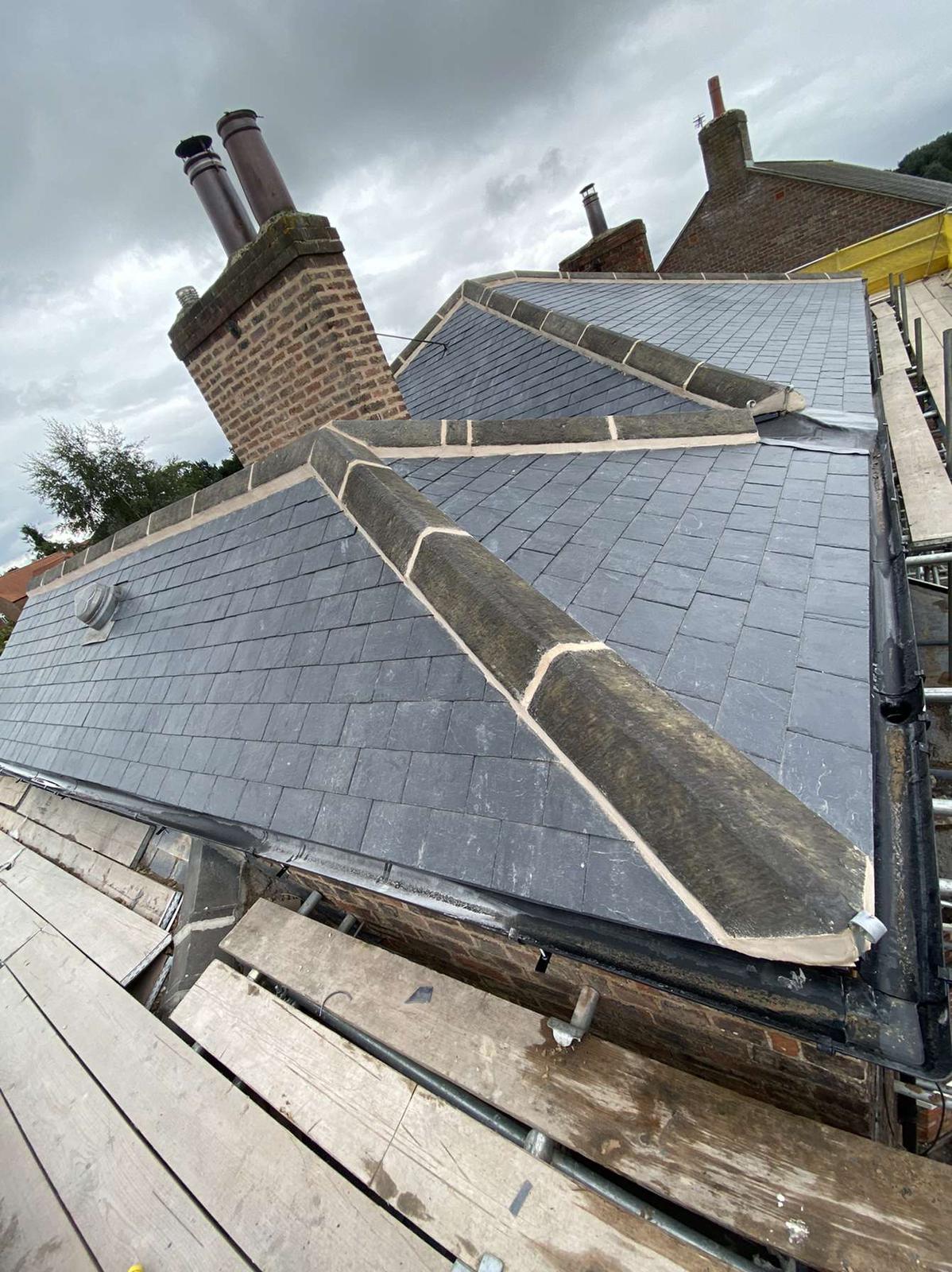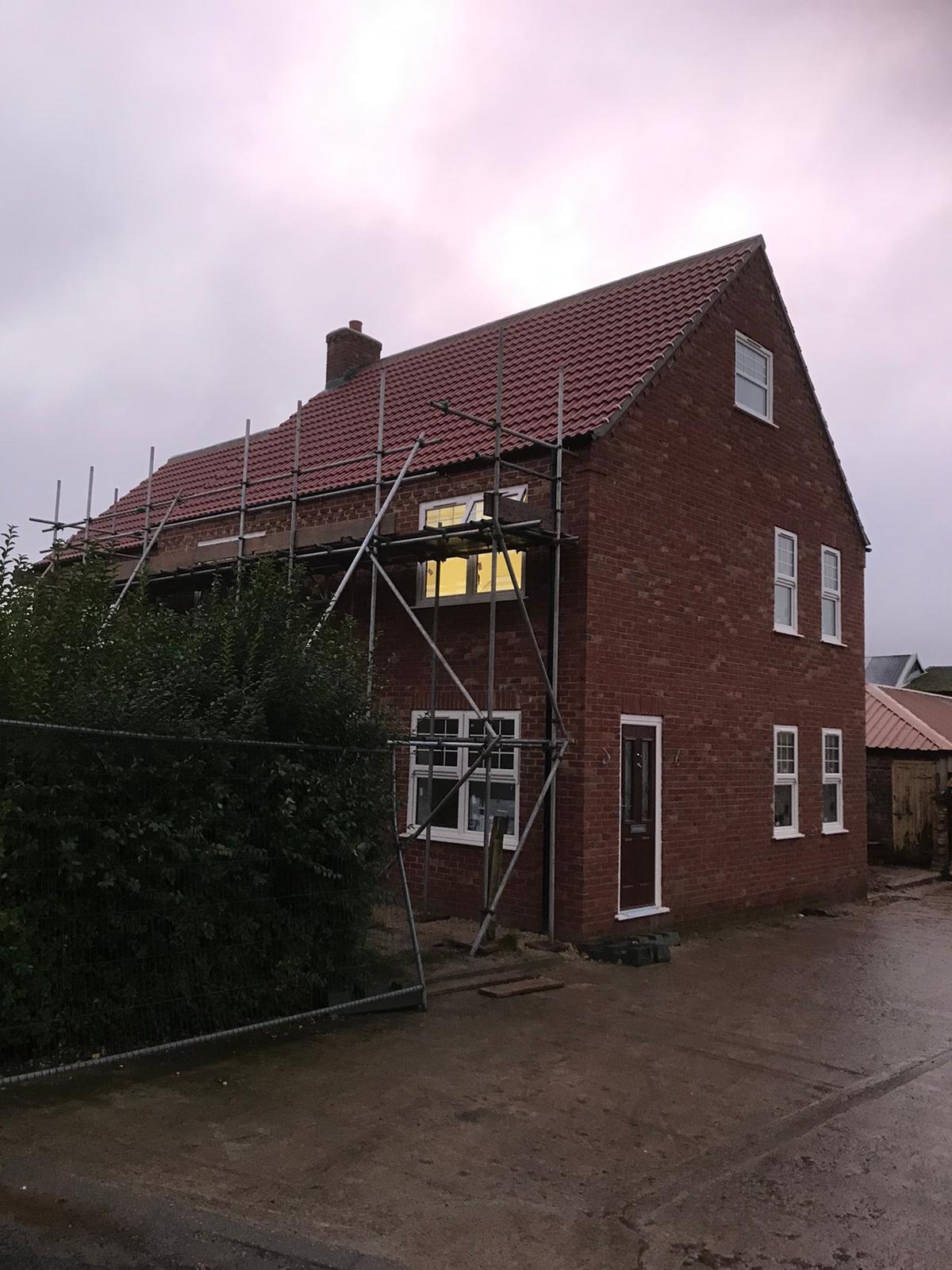Commercial Roofing
Commercial Roofing
In Doncaster, Sontech Roofing is your dependable commercial roofing project partner. Our ambition is to become Doncaster’s leading roofing company.
Commercial roofing differs from residential roofing in that it necessitates the use of an experienced contractor because some roof designs are only used on commercial buildings and not on residential homes.
The following roof types are suitable for commercial buildings:
Shingles: a beautiful and affordable roof option. Roof types such as roofing shingles are common in warehouses.
Concrete tile roofing, which is long-lasting and simple to repair.
Steel or metal roofs, which are ideal for commercial buildings such as factories because they are extremely durable and do not corrode over time when exposed to the elements.



Types Of Commercial Roofing Systems
Built-up, metal, modified bitumen, EPDM and thermoplastic roofs are just some of the commercial roofing systems in use and available to Doncaster businesses. However, in recent years, a type of roofing system known as green roofing has gained popularity, combining environmental awareness with practicality. By providing insulation or adding solar panels for electricity generation, green roofs can help to reduce energy costs. They also enhance the value of a building’s property by creating beautiful landscapes.
Because commercial buildings have higher ceilings than homes, installation takes longer, so when choosing a company to do the job, you should hire experts like us who know what they’re doing. Our roofing services include the following roof types:
Built-Up Roofing or Bur Membrane
Metal Roofing
Modified Bitumen Roofing
Thermoset Or EPDM Roof Membrane
Thermoplastic Or PVC & TPO Roof Membrane
Green Roofing System
We are a dependable roofing company. Please contact us right away to discuss your requirements.
What Commercial Roofers Do

Commercial Roof Installation
Commercial roofers are experts in the installation of commercial roofs, which includes removing old roofs, installing new roofing materials, and inspecting the work. Project management, which includes material procurement, temporary personnel employment, and subcontractor management, is an important aspect of commercial roofing projects. A commercial roofer also performs routine maintenance on roofs to keep them in good working order, which may include repairs, cleaning, and clearing blocked drains or gutters.
Roof Inspection
Roof inspection is one of the most important roofing services we provide, but it is often overlooked. Many people who choose to install or repair their own commercial roofs make the mistake of not thoroughly inspecting the structure and condition of the rooftop area prior to installation.
Commercial Roof Maintenance
Roofs on commercial buildings should be cleaned on a regular basis to avoid leaks that can cause significant damage.
Industrial Roofing Services
All types of industrial roofing installations and roof repairs can be handled by commercial roofers. Commercial roofers in the industrial sector Industrial carry out roof repair and replacement and also install a variety of roofs, including:
Asphalt Shingle Roofs
Built-Up Roof Systems
Metal Sheeting or Metal Panel Roofs
Modified Bitumen Membrane Systems
Thermoset Polymer Modified Bitumen Membranes (PBM) System
Green Industrial Roofing Systems
Contact Us
Please contact us right away to discuss your project. We will work hard to earn your trust as a dependable commercial roofing company.
Rubber roofing is made up of sheets of rubber or other material that are glued or seamed together and laid over a roof. These roofs are frequently used to cover tent platforms in the United States military, low-income housing projects, sporting arenas, car parks, campsites, and warehouses. The most common type of rubber roofing is EPDM rubber roofing, which is designed to resist tearing, perforation, and ageing but only lasts up to 20 years.
Roofs made of polyvinyl chloride (PVC), cross-linked polyethylene, thermoplastic olefin in either smooth or textured sheet form, TPO roofing, and polycarbonate roofing are examples of plastic roofing.
Each type of roof has advantages, such as requiring little maintenance; however, some disadvantages exist, such as the material being too heavy or difficult to install, for example. Your budget is the most important factor to consider because it will determine what types of roof materials are available to you and which one best suits your needs.
When choosing commercial building materials, commercial roofers should consult with a qualified professional with experience to ensure that their investment lasts. Roofs on different buildings have different designs, so it’s important to consider whether they’ll be exposed to the elements.
Frequently Asked Questions
What Is the Definition of Commercial Roofing?
Commercial roofing is the process of installing, repairing, or replacing commercial roofs on structures in order to protect the interiors from harsh weather conditions. Steel, metal, and asphalt shingle are the most common commercial roofing materials.
When it comes to the material used, there isn’t much of a difference between residential and commercial roofing services; rather, what type of building is being covered with the said material – this is crucial for clients working with a knowledgeable contractor they can trust.
What Are The Differences and Similarities Between Commercial and Residential Roofing?
The main distinction between residential and commercial construction is that instead of being built primarily for shelter, commercial roofs are designed to be watertight and as opposed to residential roofing, different types of materials are used. Commercial roofing must be able to withstand heavy snow loads, while residential roofing is designed to withstand hail, wind, and rain.
Commercial roofing services are used on structures such as churches, schools, large retail stores, and warehouses where water tightness is a primary concern. It’s an important part of the building envelope because it protects the contents inside from water damage or leaks.
What type of commercial roofing material is most common?
EPDM (Ethylene Propylene Diene Monomer) is used the most for commercial roofing.
EPDM rubber roofing, one of the most widely used commercial roofing materials today, is doubly desirable since it combines affordable price with durable strength. The synthetic rubber used in an EPDM roofing membrane is made of natural gas and oil.
What do I do if I Need a commercial Roof Replacement/Repair?
If your commercial roof is old and worn out, your interior is likely to have been exposed to leaks or even flooding as a result of water damage, which could result in costly mould remediation services. This is the time to think about a commercial roof replacement or at the very least a professional inspection and repairs. When it comes to commercial roof replacement and repair, the process is far more complicated than when it comes to residential roofs. This is due to the fact that most commercial buildings have flat roofs that require waterproof membranes, as opposed to sloped residential roofs where water drains easily from gutters on both sides of the building’s exterior walls. You must also consider factors such as parking lots that may be part of a large office complex, as well as any mechanical equipment housed within these structures, both of which add to the project’s complexity.
Commercial roofing contractors and companies can assist you in determining which system is best for your needs, as well as provide a written estimate that includes labour and materials such as asphalt shingles or another waterproof membrane (such as EPDM rubber) required to complete the job. For those who prefer do-it-yourself projects, there are numerous videos on YouTube that show step-by-step installations, as well as related equipment such as rollers and squeegees that are needed during the application process.
As with residential roofs, the first step is to determine whether you require an entirely new roof or if repairs are sufficient as in some cases. Roof repair is an important part of commercial roofing services because it ensures that your investment is protected from natural disasters like storms and lightning.
What factors should I consider when hiring a commercial roofing contractor?
A highlight of seven key tips is the best answer to this question.
- Make inquiries.
- Request references. We will gladly refer you to a number of previous and current clients who can attest to our service and client relationship style, as well as why you should hire us.
- Consult the Chamber of Commerce and other national roofing associations for more information.
- Request portfolios, as previous project experience demonstrates competence in understanding and executing your requirements.
- Select a business that provides free consultations. This is because, as experts, advising you on the best options and alternatives to consider costs us very little, but it benefits you greatly, potentially saving you a lot of time and money.
- Select a business that provides extended warranties. Given the materials we use and our sources for those materials, we are able to accomplish this.
Are you capable of working with asbestos?
If you need to remove and dispose of roof products that contain non-licensed asbestos, please contact us. We can talk about it as part of a roof renovation project.
